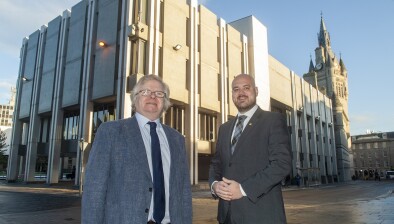31st Oil & Gas survey highlights increase in confidence of North Sea energy firms
 Business confidence within the oil and gas sector has increased with 43% of contractors reporting a rise in production activity, up from 28% 12 months ago, according to the 31st Oil & Gas survey conducted by Aberdeen & Grampian Chamber of Commerce.
Business confidence within the oil and gas sector has increased with 43% of contractors reporting a rise in production activity, up from 28% 12 months ago, according to the 31st Oil & Gas survey conducted by Aberdeen & Grampian Chamber of Commerce.
The survey of 90 UK firms employing around 55,000 people was carried out in partnership with the Fraser of Allander Institute and KPMG UK.
It also found that North Sea energy firms are increasingly pursuing projects outwith traditional oil and gas as the industry seeks to diversify and reduce its carbon footprint.
The report found that over half (52%) of oil and gas companies have reported increasing demand for their products and services in non-oil and gas projects.
Accordingly, 25% of respondents are pursuing work outside of the traditional sector.
The report also indicated that nearly half (49%) of North Sea operators and contractors are working to reduce their carbon footprint or develop low carbon services.
A total of 86% of oil and gas company’s surveys detailed some likelihood of them engaging in decommissioning work in the medium-term, with less than a third expecting to be 100% focused on oil and gas by 2025.
Shane Taylor, research and policy manager at Aberdeen & Grampian Chamber of Commerce, said: “It’s clear that the energy mix in the future will be far more diverse and for our existing supply chain there’s huge opportunity to be seized from diversifying into new markets and sectors proactively.”
The report warned that the downturn which struck the industry several years ago remains a risk factor, as 88% of survey respondents pointed to the price of oil and market stability as their biggest concern for the next decade.
While recruitment continues to rise with 54% of contractors having increased their total workforce the last year (compared to 40% in 2018), 44% of firms are finding it difficult to attract staff to the North-east, with a quarter claiming recruitment challenges were the result of difficulty recruiting for non-traditional roles.
Mr Taylor added: “Fundamentally, few of the major challenges facing firms in the sector are likely to be solved overnight. What is clear is that some of the big issues, particularly talent attraction and the energy transition, will benefit from a collaborative approach to showcase where the industry is actively taking action.
“Proactively pursuing these strategies, and demonstrating real success, will be key in engaging the talent the industry needs to continue to contribute to the UK’s energy security for decades to come.”
Martin Findlay, office senior partner and tax partner at KPMG in Aberdeen, said: “Despite continuing uncertainty in the wider Scottish and UK economies, and the impact of climate change on investment priorities for providers of capital, the latest survey paints a positive picture for the oil and gas sector with growing confidence levels driven by a deep sense of resilience and an increasing focus on innovation.”










